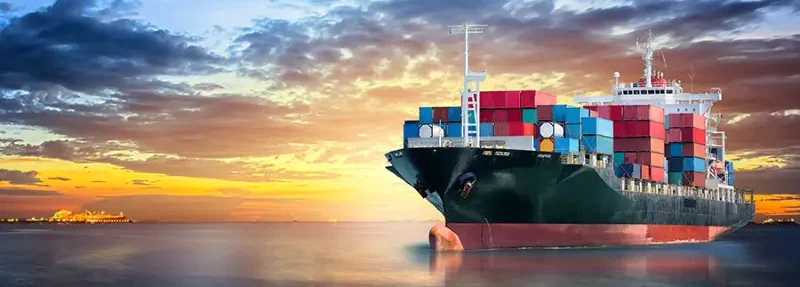Paving a new horizon — Exporter Magazine

Horizon International has been a name synonymous with paving for decades. But it was a remarkable sequence of events in 2013 that led it to having the ability to supply on both sides of the Tasman.
By Glenn Baker.
For a large part of Horizon International’s 45-year history it has been actively involved in New Zealand’s paving industry. Over the years a conservative estimate is that they have supplied more than one million square metres of paving into the New Zealand market. And it has long been a preferred supplier of pavers to projects in Australia, Fiji, Malaysia, Macau and Hong Kong.However, despite the scale of its activities and prominence within the local paving industry, few people outside the sector will have heard of the family-based company. It is deserving of a much higher profile.“In the early years we were contractors and at one time Horizon had one of the largest paving contracting installation operations in New Zealand,” says Horizon International’s managing director John Roper, whose wife Carol is the office administrator, son Nathan director of sales and son-in-law Walter GM.“We are proud to lend our name to such milestone jobs like Queenstown airport, the Sky Tower, Auckland Viaduct – at that time the largest contract in New Zealand – and a substantial number of city and town revitalisation projects.“Recent milestones include the Cenotaph in Wellington, completed as part of the Anzac celebrations, and examples of our current major projects include the rebuild of Invercargill’s City Centre, Dunedin University, major rest home projects and several Christchurch CBD reconstruction projects. This is on top of supplying the domestic market on a national basis.“And some years ago we were awarded the New Zealand Supreme Award for landscape contracts with a value in excess of $1 million for our work in the construction of Wellington’s Frank Kitts Park.”Horizon has also lived up to its international name-tag. In 1996 the company opened a factory 50 miles out of Beijing to manufacture pavers for the local Chinese market. “We employed 40 staff and ran it for five years,” says Roper. “We understand that this was the first ‘wholly owned foreign enterprise’ in China – where we retained the assets in New Zealand ownership.“We were before our time; there was none of the assistance available today, such as NZTE, to assist with local issues, all of which were completely new to us.”He says the China model was subsequently repeated for the Malaysian market, where Horizon commissioned another paving manufacturing plant.The focus then centred back on New Zealand, shifting the business model to sourcing and supplying top paving and associated products from various countries, with an emphasis on rebuilding and revitalising town centres.
“Horizon subsequently built a long and established history with Nubrik clay pavers from Australia, as well as Stonevue large-format pavers and high quality Terrazzo pavers from Melbourne, says Roper. “Over the past four to five years this has extended into importing granite and basalt from China. The net gain from building such a network delivers a layer of confidence that we live and operate by through our ethos: ‘all things paving’.”
As fate would have itThen came an extraordinary sequence of events. The first was when Horizon purchased the manufacturing plant and product offering of W Stevenson and Son in Auckland, which enabled them to manufacture the same product profile they had previously been sourcing from Melbourne.“The tangible value of selling our own New Zealand made product versus the Australian competition provided the impetus to pursue the Stevenson’s opportunity,” explains Roper. “Stevenson’s had done a brilliant job in developing the Terrazzo Veneto brand and it made good sense to blend our market and industry knowhow together with the highest quality New Zealand paving product. “By purchasing their plant and IP we could have control of our supply and so we subsequently relinquished the distribution of the Melbourne offering.”The second event was the same Melbourne company experiencing financial difficulty, and the decision by Horizon to purchase its entire manufacturing plant and assets.“We were given just ten days to dismantle the complete factory, remove it from the site and have it fully packaged up to ship to New Zealand,” recalls Roper. “Given that we had no local contacts for engineers, tradesmen or logistics it was a huge undertaking.”The strategic appointment of the site’s former production engineer to assist at both ends proved vital, he says. The plant was stripped of 25 years of concrete residue and deleterious materials to meet both Australian and New Zealand MAF requirements, then dismantled, shipped to a holding facility, packed into seven 40-foot containers and shipped across the Tasman. The plant was then rebuilt and was operational within three weeks from arrival.Roper says prior to commissioning of the Melbourne plant in New Zealand, the company was continually challenged to meet orders on time. That’s no longer the case – with the new fully automated Melbourne plant output has increased by 400 percent.He says there is now huge market potential – particularly in Australia thanks to the purchase of the Melbourne firm’s assets and its 30-years’ worth of contacts.“The product offering and our automated plant – the only specialised automated machinery paving plant in New Zealand and, as far as I am aware, one of only three in Australasia – gives us a huge advantage in being able to provide volume in the shortest time-frame,” says Roper. He says they’ve recently completed their first order of ten container loads and have substantial follow-up orders on the books.So what has he learnt from the Australian export experience?“We’ve learnt that Australian clients are no more demanding than New Zealand clients. The export documentation has to be very accurate, as does the coordination of logistics in shipping and when we’re required to deliver to site; it requires micro managing to ensure the total contract is fulfilled.“Horizon’s business goals and export plans are to increase our presence in Australia and eventually have our own staff on the ground there,” says Roper.“We’re also currently talking to a company that we’ve had associations with for several years to utilise their resources to represent us in presentations to architects and specifiers.”Of course, the irony is that Horizon went from an importer of pavers to a net exporter of a product that does not fit into the normal export product profile.
“Because of this export opportunity we have increased staff and recently taken receipt of additional new plant that lets us increase product processing even further.”
File Download
 Profile_Paving a new horizon.pdf
Profile_Paving a new horizon.pdf





